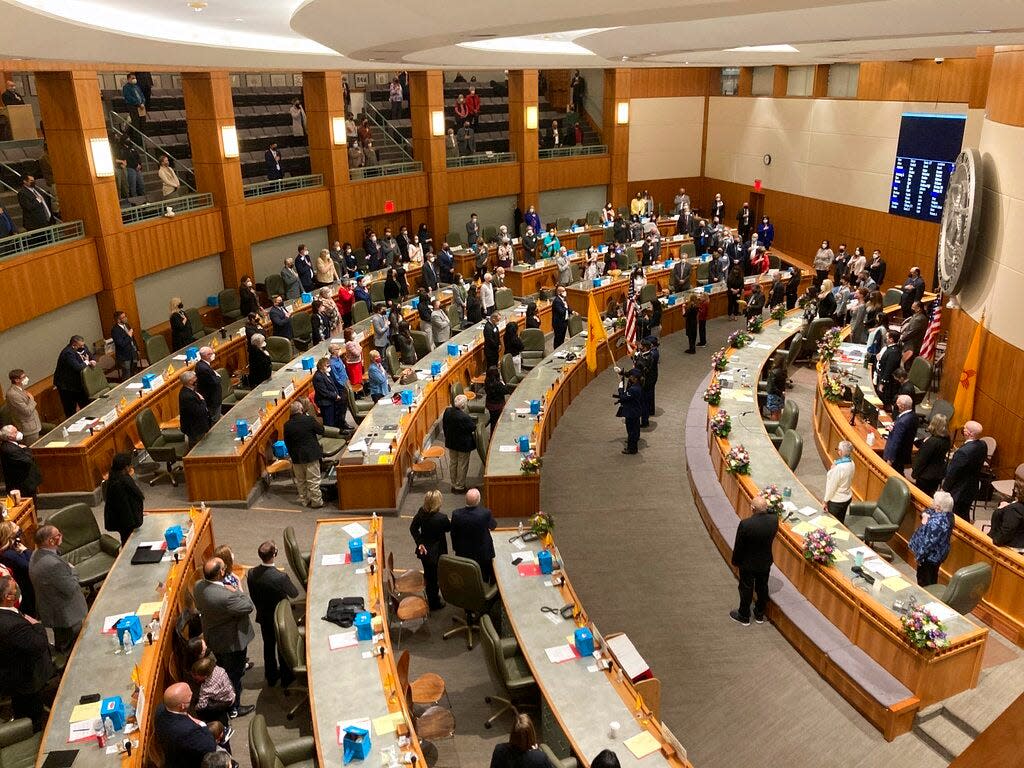New Mexico has the nation's only unsalaried legislature. Lawmakers are hoping to change that.

SANTA FE – The nation’s only unsalaried legislature is considering whether to abandon its amateur status that has endured for 110 years since New Mexico became a state.
A Senate panel, including top ranked Democrats, endorsed a proposed constitutional amendment to provide a salary to legislators, who collect a daily stipend of roughly $165 during legislative sessions and reimbursements for travel.
Approval by the New Mexico Legislature would send the measure to a statewide vote on whether to amend the state constitution. Similar proposals have stalled repeatedly in recent years.
Democratic state Sen. Daniel Ivey-Soto of Albuquerque — cosponsor of the initiative — said legislative salaries would be set by the State Ethics Commission, ensuring lawmakers won’t set their own pay or approve raises directly. A similar House-sponsored initiative would set salaries for legislators through a specialized public salary commission.
“By having salaries set by an independent body, that would address the voters’ concerns,” Democratic Senate Majority Leader Peter Wirth said. “They don’t want us setting our own salaries.”
More: New Mexico lawmakers, governor seek $1B spending increase. Here's what's in the proposals.
New Mexico’s “citizen legislature” of volunteer politicians has long been a source of civic pride in the state. Members receive a roughly $165 daily stipend during sessions and some money for gas. Longstanding legislators qualify for an optional pension plan.
Critics of the system say legislative salaries would help younger candidates from working households serve as lawmakers and alleviate conflicts between legislative duties and private careers.
The proposal drew favorable comments from advocacy groups ranging from the League of Woman Voters, which promotes civil participation in government, and progressive-leaning advocacy groups including Retake Our Democracy.
“We’re going to really expand the universe of people who are able to serve if we do have a salaried legislature. Right now it’s largely the rich and retired,” said Democratic Sen. Katie Duhigg of Albuquerque, noting the challenges of juggling legislative duties with the separate demands of full-time work and family as a single parent.
Duhigg last year championed successful legislation to legalize, tax and regulate nonmedical marijuana, later cofounding a law practice that caters to the cannabis industry.
More: Should 16-year-olds vote? New Mexico governor, secretary of state present voter rights agenda
New Mexico’s Legislature meets for as few as 30 days a year, with 60-day sessions in odd-numbered years. There are more extensive duties and travel for members of year-round budget and policy committees.
The salary initiative advanced on a 7-1 committee vote on party lines with Democrats in support. Senate minority leader Gregory Baca of Belen cast the lone “no” vote without comment. No other Republicans participated.
The State Ethics Commission was authorized by voters in 2018 in the wake of a string of public corruption scandals as an arbiter of complaints against public officials, lobbyists and contractors. Its members are appointed by leading legislators from both parties and the governor.
The initiative from Ivey-Soto and Sen. Bobby Gonzales of Taos also would authorize the ethics commission to set salaries for all elected officials in state government.
This article originally appeared on Las Cruces Sun-News: Some legislators in New Mexico tire of amateur status

